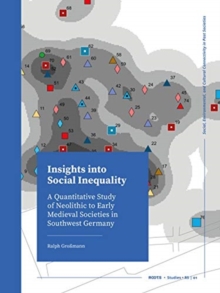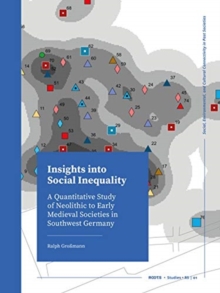
Distant Times So Close: Pandemics and Crises Reloaded Paperback / softback
Edited by Johannes Muller, Cheryl Makarewicz, Lutz Kappel
Part of the ROOTS Booklet Series series
Paperback / softback
Description
Archaeology is all about how the present came into existence.
Thus, it contributes to the social understanding of crises, including present and potential future adversities.
Even diseases, such as pandemics in past societies, were and are observed by archaeology.
Some examples can be found in this booklet. The scientists of the Kiel Cluster of Excellence ROOTS describe human reactions in past societies that were organized quite differently from ours.
This is precisely why it is possible to identify the basic features of human behaviour for the management of crises. From the emergence of agriculture more than 10,000 years ago to the Russian colonisation of Siberia a few hundred years ago, a fundamental pattern is becoming apparent: crises, including those caused by disease, can only be managed by increasing diversity.
Acceptance of diversity, the introduction of new technologies and socially responsible action have always led to the mastering of crises. It is also clear that values can only be preserved or updated in crises through active involvement.
For example, scientists describe that when people are passive, other social groups can easily bind power to themselves, whereas when people actively participate, more democratic structures can develop even in crisis scenarios. This is the message that we take with us from the past: whether as a forager or as a simple farmer in earliest agricultural societies, in ancient Greece or in an early modern society - diversity and social commitment are the components that help us to overcome crises.
Learning from the past for the present - that is the task of international archaeology.
Information
-
Available to Order - This title is available to order, with delivery expected within 2 weeks
- Format:Paperback / softback
- Pages:31fc/3bw
- Publisher:Sidestone Press
- Publication Date:24/09/2020
- Category:
- ISBN:9789088909696
Information
-
Available to Order - This title is available to order, with delivery expected within 2 weeks
- Format:Paperback / softback
- Pages:31fc/3bw
- Publisher:Sidestone Press
- Publication Date:24/09/2020
- Category:
- ISBN:9789088909696










